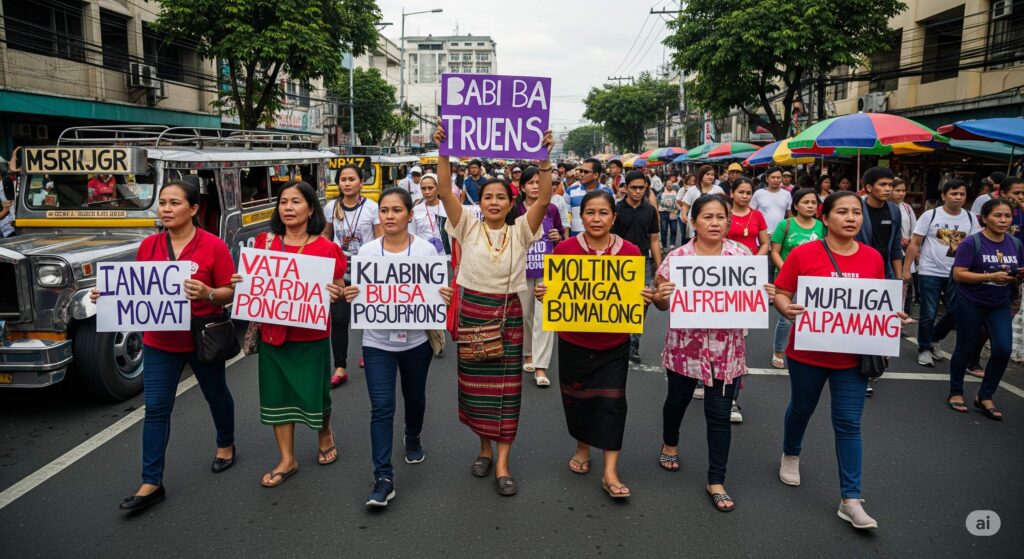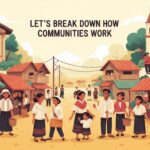Hey, activist! Let’s dive into strategies communities use to empower themselves and advocate for justice . Think of this as your toolkit for turning “this is impossible” into “we did it together!” 🔧✊
Step 1: Icebreaker – Your Advocacy Story
💬 Quick Share:
Share a time you or someone you know stood up for a cause.
(Example: “My mom organized a petition to save our local park!”)
Step 2: Empowerment Strategies – Building Strength from Within
1. Capacity Building
🌟 What It Is:
Teaching skills (leadership, finance, tech) to help people lead their own change.
🌍 Example:
- Rural India : Women’s collectives learn accounting to run their own cooperatives.
- Your Move : Host free workshops (e.g., grant-writing, public speaking).
2. Participatory Decision-Making
🌟 What It Is:
Including everyone—especially marginalized groups—in planning.
🌍 Example:
- Brazil’s Budget : Porto Alegre let citizens vote on how to spend public funds.
- Your Move : Use surveys or town halls to gather ideas.
3. Economic Empowerment
🌟 What It Is:
Creating jobs or fair wages to reduce poverty.
🌍 Example:
- Grameen Bank : Microloans help poor women start small businesses.
- Your Move : Support local entrepreneurs or start a community market.
Step 3: Advocacy Strategies – Making Voices Heard
1. Grassroots Mobilization
🌟 What It Is:
Uniting people to demand change through protests, petitions, or strikes.
🌍 Example:
- Climate Strikes : Greta Thunberg inspired millions of students to skip school for climate action.
- Your Move : Organize a walkout or social media campaign.
2. Media & Storytelling
🌟 What It Is:
Using stories, art, or hashtags to spread awareness.
🌍 Example:
- #BringBackOurGirls : Viral campaign pressured governments to act on kidnapped Nigerian schoolgirls.
- Your Move : Create TikTok explainers or murals about your cause.
3. Policy Advocacy
🌟 What It Is:
Lobbying lawmakers to create or change laws.
🌍 Example:
- Marriage Equality : Activists pushed countries like Taiwan to legalize same-sex marriage.
- Your Move : Write letters to representatives or join lobbying groups.
Step 4: Overcoming Challenges
⚠️ Common Roadblocks:
- Power Imbalances : Rich corporations vs. poor communities.
- Burnout : Activists getting tired or overwhelmed.
- Fear : Retaliation from authorities.
💡 Solutions:
- Build Alliances : Partner with NGOs, celebs, or global movements.
- Celebrate Small Wins : Toast to progress, even if it’s slow.
- Stay Safe : Use encrypted apps or anonymous tip lines.
Step 5: Case Study – The Chipko Movement
🌍 How It Worked:
- Problem : Deforestation in India’s Himalayas.
- Empowerment : Villagers (mostly women) hugged trees to stop loggers.
- Advocacy : Their protests went viral (pre-internet!), leading to logging bans.
❓ Reflect:
How can you adapt the Chipko “tree hug” tactic for modern issues?
Step 6: Your Empowerment & Advocacy Plan
🚀 Take Action:
- Today : Share a story about your cause online.
- This Month : Join a protest or attend a city council meeting.
- Long-Term : Mentor someone from a marginalized group to lead.
💬 Final Thought:
“Empowerment is not giving people power—people already have power. It’s helping them realize it.” – Unknown
You’ve got the strategies—now go empower and advocate! Remember: even tiny actions can spark revolutions. Questions? I’m here! 😊


